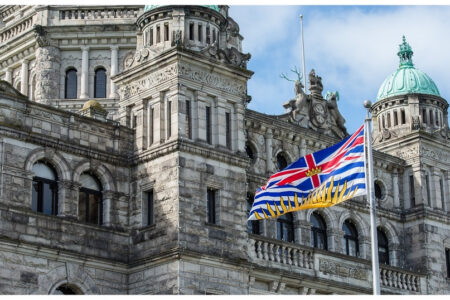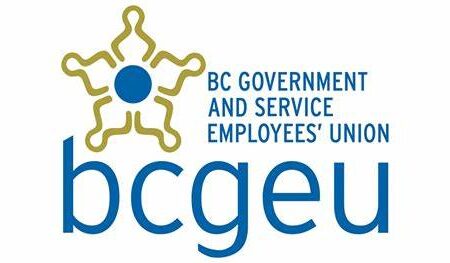BC ELECTION: The Telegraph Interviews the Candidates, Part 1
Over the course of the last two weeks, the editorial board of the Telegraph sat down with all four candidates in next week’s provincial election. Generally, the candidates revealed themselves to be thoughtful, fairly well-informed people. We decided that the best way to publish the results of our interviews would be to place the candidates’ replies side-by-side in order to allow Rossland’s voters to compare their views on the issues of the day. We asked all four the exact same questions and none were given the questions in advance. Some were surprised by the extent and nature of our questioning. One expressed the opinion that they should have been given the questions in advance in order to ‘prepare’ while another expressed surprise that they were being asked for in depth answers, observing that they were typically asked only a couple of questions by reporters and were asked to keep their responses to ‘sixty words or so’. Viva democracy, we suppose.
This story will be posted as two seperate articles for ease of readability—as we found, our prospective representatives are not given to brief answers when permitted! Not, we think, a bad thing for the most part.
A final note: the response [Did not answer] does not denote a refusal to answer, it just means that due to time constraints the question did not get asked of that particular candidate.
PART ONE
TELEGRAPH: What is the biggest problem facing the world today?
ANDY MOREL: There’s no question: the concern, the panic, or the lack of panic about the environmental changes the earth has been going through and the impact that man has had on that. I don’t profess to know the science behind what’s been evolving on the planet since we’ve been inhabiting it, but there’s no question that in the 19th and 20th centuries we’ve had tremendous expansion and growth and it’s beyond the carrying capacity of the earth and if we carry on the same road in Western society we’ve basically been the movers and the shakers and it’s been progress and growth that have gotten us into big trouble. We can get into consumerism and all of the other issues that are influencing that but the reality is, it’s the environment.
BRENDA BINNIE: The economy, definitely. The global economy is in the tank right now. We need to be able to survive and in order to get through this we need a strong and stable responsible government to carry us through and I believe the BC Liberal government has the strategy and will continue to move us forward through the economic uncertainties.
KATRINE CONROY: Right now, it’s the economy and what’s happening with the environment. When you look at the bigger picture around the economy you also have to look at what is happening with climate change and how the economy affects that and vice versa.
People right now are worried about jobs, their investments, being able to retire, young people are worried about getting good, decent, well-paying jobs, affordable housing and they’re worried about their education. We talk to a lot of young people who can’t’ afford to go to post secondary education or it’s taking them longer to graduate so they can work while they study. It all revolves around the economy.
ZACHARY CRISPIN: Captialism. That’s fairly broad, but if we were to abolish that system, most of our societal problems would disappear. The biggest problem we face here in Western Canada and British Columbia is education. If people were educated, our system would fall apart because people would see the nature of capitalism and they would rise above it.
TELEGRAPH: If you couldn’t vote for yourself, which of the other parties would you vote for?
BINNIE: [Did not answer]
CONROY: That’s a hard one. I’ve been a New Democrat all of my life. In Kootenay West right now when I look at the four candidates if I couldn’t vote for myself I’d vote for Zachary Crispin. He’s a well-spoken young man and he’s got some good ideas. Some of them might be a little interesting but out of the four candidates, not including myself, I’d vote for him.
CRISPIN: In this riding, considering that there’s a BC Liberal, an NDP, a Green and myself, I would probably vote for the NDPer. The BC Liberals are a capitalist party and support the corporations. They don’t look out for the little guy in any way. The Green Party has an eco-capitalist stance and though I think that Andy Morel, their candidate, is a great guy and he has a lot of good points, the party offers false salvation and will bring the same self-destructive tendencies to the world as regular capitalism would. So I think a social democrat, even though they support capitalism in some ways, would do a better job than the Liberals or the Green Party.
MOREL: That is a bizarre question. I’d vote for another green candidate if it wasn’t myself. I don’t see a lot of other options. I agree with some of the things the other parties are talking about. A carbon tax was an important move that the liberals have made but it is totally incongruent with the other thing they have done and do. The NDP profess to be environmentally friendly but wanted a cap and trade. What is that all about? And not to mention some of the other policies that they are historically known for: they profess to be environmentalists on many fronts but on others they don’t. And their lack of action in previous situations has shown that it is not a priority, so it’s a hard call. I think that one of the most radical things that has been done was by Mr. Campbell on the carbon tax. And I’m not saying I’d vote Liberal right now because I’d really struggle with that but there’s no question it’s one of the most radical things that has been done.
TELEGRAPH: Our traditional view of the economy is that growth is good (that’s how we measure a ‘good’ economy, by if it’s growing or not). And yet, logically, infinite growth on a finite planet is impossible. How does your party intend to deal with this fact?
BINNIE: I’m not sure what you’re question is.
TELEGRAPH: We’ll rephrase. As far as the economy goes, we can’t just continue to grow forever and we hear all the time how well the province is doing by the rate of growth. How would you deal with that issue of maintaining a liveable, productive province without having to continually grow?
BINNIE: It’s smart growth. The plan of smart growth. How do we make sustainable communities? You can look at the urban centers and how they are trying to project a growth where it’s a more sustainable more smart growth where accessibility and green environments. It’s a little harder in the rural areas to do that as we are more spread out but we need to keep that in mind and how big do we want to grow. Right now we are not growing in people at this point. So it’s how do we sustain the growth and make it a smart growth. Do you understand what I mean by smart growth? How do we make it so we have everything that we need within close proximity so we’re not doing the urban sprawls and we’re not spread out all over the place and just throwing money every way but south? How do we bring it all together so that you don’t have to go too far for what you need and use more environmental green projects. How do we make it so you are growing your vegetable and you are eating them here?
I’m a person that loves the quality of life we have here in the Kootenays. I have lived in both Vancouver and here. I wouldn’t give this up for a second. I still think there are a lot of things we could do here that are smarter in the rural areas and using the resources here that we have instead of constantly more and more and more we need, need, need. We have a lot already. What are we going to do to make sure that the growth is smart and not just because we need to grow? I mean that’s a personal opinion. A lot of people need a lot of stuff to live. I don’t need much to live. We’ve got it all here, this is beautiful.
CONROY: Well, growth at what cost? And that’s what you have to look at. So when we’re looking at growth you do need to look at it but you also need to look at what kind of impact is that growth going to have. We’ve got industries that may create valuable, family-supporting jobs but at the same time are also degrading the environment and you’ve got to end up having a place where your family can grow and raise kids, so you have to look at what can work together and we have to make sure that we have policies in place that create growth but at the same time support communities and support the people that are living in those communities and support the environment. You have to make sure that you support rural BC. You can’t just have growth in small parts of the province in the Lower Mainland or around the Olympics. You have to have growth throughout the entire province. You have to have rural growth as well. We’re very strongly supporting a lot of ideas out there so that we have a good amount of growth in the other parts of the province and not just the lower mainland.
CRISPIN: We believe in working toward a sustainable economy. We believe in having an economy that continues to work based on how many resources we have. If we have a sustainable economy where people work for the betterment of themselves and the betterment of their community there will be no issues with growth or stagnation of the economy. The exploitation of the environment is a lot like the exploitation of the workers. Exploitation of the environment comes from corporations and it has to be stopped by stopping corporations. Our green candidate sees consumerism as the most harmful thing for the environment, but if consumers are taught in corporate schools and work in a capitalist system, there’s not a lot they can do to work against that. That’s why we say education is so important.
MOREL: It’s a hard one, and not because we haven’t come up with a plan, but we recognize that growth and expansions are really four letter words and they haven’t been considered four letter words. Our idea of the word economy has to change. Spending time learning about historical economies and learning about where our future needs to go, but obviously we have to live within our means and we haven’t been–it’s as simple as that.
TELEGRAPH: Does your party have a policy in the platform to address this idea of unlimited growth?
Well, yeah. Basically we’ve said no. We have to realign our concept of growth. We know that we have to change the model of what success means and we have a specific policy built around that. It’s highly cerebral and it’s going to take a whole shift in what people consider success to be. It’s about bringing globalization back down to earth and about realizing that self-sustainability has to be a buzz word. It’s not about bigger bank accounts; it’s not about serving the board rooms. It’s a delicate issue because we realize that we aren’t radically going to change our economy overnight; however our economy is going through that kind of change already and we’re trying to just bring back what we had.
We can’t duplicate what we had in the past 3o years. That’s what the capitalists will say basically we want the good times back: we want our four-ton F 350, we want our high paying oil rig jobs back and then everything will be all happy and good again and a lot of people know that that is not sustainable–so how do we change it? We talk about changing some of the principles, we talk about changing our value systems, and we look at how we measure growth. Instead of just looking at the GDP, we start looking at environmental impacts and start looking at social impacts and start looking at how does the decision we make today influence all of the natural processes.
TELEGRAPH: Are food and shelter basic, inalienable human rights?
CRISPIN: Absolutely. We believe in abolishing the wage system eventually, so having a living stipend for all citizens is something that we can work towards in Canada. Before someone goes to work they should live above the poverty line. The fact that we have people below the poverty line just goes to show the system isn’t working as it is. People talk about raising the minimum wage, but to raise wages to anything that keeps people below the hunger line seems totally inhumane and criminal. Some people believe if you give people enough to live on they won’t work, but that’s not true. If people don’t have to work for a living they’ll go out and find a job they actually like to do. The vast majority of people on welfare are there because they have issues they can’t deal with.
MOREL: Absolutely. No question. Food and shelter are critical to our existence and without those basic needs we can’t survive as animals which we are very much. Individual responsibility for those things has become less and less apparent for our society especially in western capitalist society.
BINNIE: [Did not answer]
CONROY: Well, yes. Absolutely. There are real issues around food security. It’s a big question that we’re all concerned about. We have concerns about food security and the 100 mile diet. The Liberal party has implemented some policies that make it really hard to live by the 100 mile diet and to support local farmers who are growing food that we should be able to buy locally. We need protection.
We raise beef. We have a ranch in Castlegar and their policies make it illegal for us to sell our beef off of the farm. We’ve been doing it for 35 years. We’ve never had an issue. None of the people we deal with have ever had an issue in this region with the farmers or the ranchers. The policies are geared to urban BC. It does not help rural BC. It’s the big abattoirs and the big companies that have these big facilities that are benefitting. But we have excellent small facilities in this region where people want to slaughter their own animals and for people who eat meat it would be nice to eat local meat. Food security is an issue. There use to be hundreds of millions of dollars in vegetables coming out of this region but you know it’s gone now and we import from California–and what’s the carbon footprint on that, you know? It’s better for the economy to go local, better for the economy and better for our health.
TELEGRAPH: Voting every four years is a very limited form of democracy. How do you think we can improve on that?
MOREL: Well, I have a theory that recall is a radical but efficient mechanism to keep MLAs and MPs on their toes. I think its important hat partisanship party politics is diminishes and I think recall is one way that we can seriously put a bit of a flame to the feet of politicians. The other thing, obviously, I think is one of the difficulties with a four year term is that when it comes to partisan politics we continue to get caught up in stuck with those policies for four years. We look at the percentage of vote that typically gets a majority government in and it’s considerably less than the majority of the voters out there. I don’t know if you’ll have questions about STV but there is no question we’ve got to look at changing our electoral system. I think a four year term is important. I won’t diminish that we should be holding elections on a shorter term basis but four years is very short when you’re trying to move dinosaurs or move mountains, which the government is.
BINNIE: Once again, I’m not understanding the question. I mean four years has provincially been done for as long as I can remember. I’ve not heard anybody say that voting more times would help in that situation. I believe we have a democracy.
TELEGRAPH: Are there possibly some other ways to increase or improve democracy in BC, not just changing the elections from four years to another term length?
BINNIE: Well my opinion on the STV which is probably what you should have asked me in the first place… In a way I see that as, look we have given the people ‘the chance to make up their mind whether or not they want that and we’ve put it on the table here at the election for people to make a decision if they want to vote for 1,2,3,4 and it will be up to the people’.
It gives them an opportunity to make a choice and make a decision and I believe that’s where it lies. Personally, I’m not in favour of it, but that’s my personal opinion, I think it’s confusing to the general public. There has been a lot of education on STV. There’s been a lot of things that people needed to look at to make sure and if people choose it, that’s what we have. It’s up to the people. It’s up to the people that go out and vote. If we don’t get a lot of people out voting… It could change the way we look at things. I don’t know where the vote is going to go on STV. Like I said, though, it will be proven by the people. I think it’s good to have choice. That’s the proper way to do things. A big issue like that, it changes the whole look of elections and in fact it could cause more and more elections. If we already have apathy for people getting to the poles every four years. Imagine if we had it every year or every six months or something like that.
CONROY: I think you improve on it by giving local communities more of a voice with what is happening provincially. One of the things we’re seeing is that the Liberal government brought in legislation called Bill 30 and it eliminated the right at the municipal and regional district government’s politicians to have a voice. So you elect your municipal government to your riding and if some corporation wants to do a project there and all of the community says, ‘no we don’t want it’ and the local municipal council says, ‘no we don’t want it’–with bill 30 Victoria has the right to say, ‘too bad’.
We’ve always been a party that works with the people; we are the people. It’s all of us in this together and that’s the way things should work in this province. We’ve got to make sure we give the people a voice you have to not only hear it you have to really listen to it and make sure that you understand what the issues are.
CRISPIN: Every six months or a year, depending on how we set it up, representatives would report back to their constituents in their riding. If the people did not see progress in what their MLA was doing, they would have recourse to recall. This is a similar system to what they have in Cuba. They have a riding hall. They [the MLAs] come and give a report. It’s like when we vote, everyone has a time off work. If people aren’t happy, there is another election and the person can be replaced.
TELEGRAPH: The leading parties can often attribute their success to donations made from their corporate/labour sector. Do you see this as posing a conflict of interest? And if so, how can we go about correcting the situation?
BINNIE: Well, I think that there are guidelines in elections BC for all of us to follow and I believe that that is the case. All parties are following what has been put forward by elections BC and if they are not then there is a problem. I believe all parties are following the guidelines and I hope that is the case. I know we are. That’s what we have to do. It is the law. The law is put in place for us to follow. I don’t think anything in Elections BC is wrong. You can’t tell the parties anything other than what is in the guidelines for Elections BC. It’s like our Bible. We have to follow it. Trust me, there are strict guidelines. In fact, I’ve never seen so many in my life. I’m quite new at this.
Where I’m at right now I don’t have you know unions or anything backing me as a candidate. I don’t have any of that stuff. I’m running a very tight budget here. That’s just the way it is. I have a lot of people walking in the door. People that care about the party giving personal donations. Other than that we’re running a very tiny budget here and my personal heart says that’s the way it should be. I think that we all spend too much money on these campaigns and it’s unfortunate that we have to go through this to get the public’s eye. That we have to do so much work out there with signs and campaigns and I saw a commercial for the NDP this morning and I said Holy Cow that costs a lot of money. In my mind it’s too bad that we have to do that. I’ve done it for municipal as well. You get the signs, the signs get beat up, everything gets ruined, you go out you fix them up, it’s a daily operation. It’s 28 days of up and down and paper, paper, paper. You go, ‘holy cow, I wish we didn’t have to do that to get the people to pay attention to what’s actually happening’. It is part of the nature of the beast and it happens, though.
I know there are limits. There are limits on what BC Elections allows. I won’t be hitting that at all. I know all of the parties are following the guidelines. There are repercussions if you don’t, so good thing they are in place.
CONROY: Well we’re looking at reform to election financing because it’s interesting: there is this idea that Liberals are funded by corporations and the NDP are funded by unions. Actually for the Liberals, 75 to 80 percent of their donations come from corporations. 80% of our donations come from individuals. We have people coming in to give us their contributions–whatever they can afford. We had a young fellow come in the other day with his disability pension and donated ten dollars because he wanted to make a difference. And it makes a huge difference because he wanted to see us get elected. That is the kind of donations we get. We get individuals coming in and giving us their donations.
Do we get union donations? Sure we do, but we also work closely with the people and we want to make sure that we have good family supporting jobs that are going to support the communities.
For us it’s an issue of maybe we shouldn’t have those corporate donations. The Liberals are funded fairly substantially by certain groups and in return you see their policies that are being made to support those groups. Very business focussed, very corporate focussed. The independent power producers in the province make huge contributions to the Liberals. Private liquor stores make huge donations to the Liberals and you look at the legislation and it supports those businesses. We’re working with unions but we’re also working with working people. One of our biggest platform issues is minimum wage and the BC federation of labour is supporting that whole-heartedly. They don’t have many union folks that are making minimum wage but they are still supporting that because they believe it’s good for the province and good for everybody.
CRISPIN: I think in order to correct the situation, you’d actually have to get rid of the corporations. Because even if they weren’t allowed to give monetary support, they still could still offer support as a ‘living body’. They function as super-citizens of our nation and they have far more power than any individual. We pride ourselves on the fact that we do not have any corporate sponsors for our party.
MOREL: We in British Columbia we have unlimited campaign contributions. That is bizarre. Nationally, we’ve recognized that that is wrong and we’ve changed that. No corporations are able to make individually campaign contributions to parties nationally anymore; that should be the same in BC. It’s ridiculous. You’ve got to stop that ability to funnel funds in that back door. I mean, what are you doing? It just seems to obvious where the influence is coming from where you have to push your support towards or risk not getting those contributions. It’s too bad that this court case on the BC Rail transaction hadn’t transpired and resolved earlier because it probably would have killed them: the influence of non political special interest groups, the thinking that goes on behind closed doors. You can see that once a party gets a majority government they basically rule with their own rules and it’s not a way to run a democracy.






















